2023 has unfolded as a journey of profound insights and pivotal moments, both in the realms of global health and geopolitical landscapes.
In a year that has taken me across the world to the stunning palaces of Hyderabad and then Gujarat, the birthplace of Gandhi for G20 discussions, to Bellagio, Italy and small islands in the Indonesia archipelago, and across Nigeria, my year has illuminated the deep-rooted power imbalances, echoes of colonialism, patriarchy, and societal violence, and their profound impact on communities, nations, and institutions worldwide.
My working year started and ended in Geneva the adopted home of global health, punctuated by 32 journeys across the world, to almost every continent in the world, yet not my beloved second home Fiji and the Asia Pacific. My first and last meetings of the year were with the World Health Organisation (WHO) and the World Trade Organisation(WTO) in Geneva highlighting the inextricable link between health, trade and the economy.
In this pivotal year of global health, we worked at pace to translate lessons from COVID-19 into transformed policy and changes to global health architecture to avoid a repeat of the devastation of COVID-19 especially on Low and Middle Income Countries (LMICS). I published a long piece addressing this issue in Lancet Infectious Disease on ‘Leveraging lessons from the COVID-19 pandemic to strengthen LMIC preparedness for future global health threats’ in June, calling for a new global health order.
Working for transformation and equity has resulted in the fragility of trust between nations becoming starkly apparent. LMICS witnessed a retreat from previously espoused values of solidarity and global unity, as wealthier nations erected borders and imposed travel restrictions- demonstrated in my first engagement on New Year’s Day last year being a BBC interview on the proposed travel bans on Morocco.
This year has seen many LMICs taking bold steps to break away from long-standing dependencies and challenge the established order, redefining their roles on the global stage. A challenge I have put to leaders and us all, as a benchmark has become ever more pertinent, ‘Until a life in Abuja is worth the same as a live in Washington DC a life in Sao Paolo worth the same as a life in Brussels’. We still have a long way to go.
On a personal and professional front, I have grappled with complex existential questions. The simplicity of viewing the world and one's engagement with it diminishes once inside the circles of power, where the realities of working within imperfect, often inequitable systems become evident. I approach each circle of influence with a critical eye, fully aware that non-participation is not an option. Each moment of inaction contributes to the ongoing tragedies of maternal and child mortality, preventable diseases, and starvation due to inaccessible food resources. My resolve to engage, despite the imperfections, remains unshaken.
As a woman, and especially as a woman from the Global South, navigating power dynamics is an ongoing challenge. In leadership roles, I confront expectations that business will proceed as usual, despite the distinct values I bring as a female leader. The prevailing leadership model, often characterized by toxic masculinity, fails to recognize employees as humans with intrinsic value, focusing instead on organizational goals. This approach neglects the essence of humanity that is essential for true progress and growth within any institution or community. As a woman in leadership, I strive to govern differently, to bring a diversity of perspective that is not only about representation but about fundamentally altering how we lead.
My internal dialogues about my role in these imperfect systems are endless. To what extent am I perpetuating the status quo? Am I doing enough to shift the Overton Window, to effect real, tangible change in dysfunctional systems and inhumane processes? How do we translate lofty ideals and declarations into sustainable, tangible change?
There is a tension between the freedom of my earlier professional life, where I could somewhat speak with limited constraint, and my current, more structured engagements. Now, I find myself negotiating with individuals and entities, some initially resistant to the wider cause of social justice and equity. These global conversations, crucial for real change, are inherently complex and messy. They often involve challenging entrenched egos and assumptions and disrupting comfortable processes. However, I embrace this responsibility, knowing that significant change requires bold actions and difficult conversations. Something Pope Francis said very recently comes to mind here.
In speaking about the long debate between progressives and conservatives 60 years after the Second Vatican Council, which introduced a lot of reforms, he said: “Let us remain vigilant against rigid ideological positions that often, under the guise of good intentions, separate us from reality and prevent us from moving forward.” It is a delicate balance between standing for what is right and cleaving to rigid positions that make any sort of dialogue and progress possible. We will not always be on the same ideological side as those with whom we often have to work for the good of society. But a world where everyone is on the same ideological side is untenable and would be quite frankly, boringand stagnant. Sometimes, progress arises from a tension between ideas and because I cherish values like democracy and free speech, I am happy to do the sometimes painfulwork of challenging status quo.
I started 2023 reigniting work that had been delayed by on-going unrest in my home country. That being my commitment to highlighting the central role of women in society. My advocacy for women and girls, particularly in Nigeria and the Global South, is deeply personal and well as data-driven. In Nigeria, where only 31% of girls complete secondary education and 35% of women are literate, the absence of education leaves them vulnerable to poverty, exploitation, and health risks. Child marriage, affecting 1 in 3 girls, further compounds these vulnerabilities. Investing in their education and healthcare is critical, as it's proven that when women are educated and healthy, they contribute significantly to society. This investment isn't just morally imperative; it's economically wise.
Empowering women and girls leads to healthier, more prosperous communities and nations. By addressing these systemic barriers and prioritizing their well-being, we can break the cycle of poverty and create a more equitable world. This is why one of the most rewarding engagements I have had this year was the "Girl Child: Nurturing Our Women, Nigeria’s Own Wealth" summit which I organised through my Emergency Coordination Centre (ECC).
The summit, which I had the honor of hosting in Abuja, was a pivotal moment in our journey towards empowering Nigerian girls and women. The presence of all three Nigerian Ministers for health, finance and women- Dr. Adeleke Mamora, Dr. (Mrs.) Zainab Ahmed, and Dame Pauline Tallen, along with global leaders like Dr. Tedros Adhanom Ghebreyesus, Dr. Ngozi Okonjo Iweala, and Rt. Hon. Gordon Brown, underscored the significance of our mission and the critical importance of working cross sectorally to address fundamental inequities. Ministerial support for a new social contract aimed at creating an enabling environment for girls and women was monumental.
This Summit modelled community informed policy making, with women and girls speaking directly with Ministers and policy makers, reflecting the impacts they need from policy changes and financing to support their futures and the future of Nigeria. Hearing the direct voices of Nigerian girls and women from diverse regions was pivotal to our discussions. Their hopes, dreams, and challenges brought to light the stark realities and lived experiences of those who policies affect and the urgent need for change.
Data presented by representatives from countries and organizations such as country director of the IMF highlighted the undeniable economic impact of investing in women’s education and health. The summit's consensus on the importance of girls’ education in achieving health and development goals was a resounding affirmation of our commitment. My call for female mentorship, echoed by global leaders, aimed to inspire the next generation, ensuring that our achievements become the starting point for future female leaders. As we look to the future, the call for action is clear – we must not let down the girls and women of Nigeria. Their well-being is essential not only for their own empowerment but for the prosperity and future of our nation.
The G20 Presidency and other invitations to speak and participate in roundtables took me to India where I spent a lot of time over the course of the year. The Raisina Dialogue in New Delhi, was a significant learning experience. It highlighted the need to reassess global power imbalances and prioritize equity in development and health. These discussions reinforced my dedication to advocating for the Global South's agency and shifting away from traditional donor-recipient dynamics. The discussions emphasized the importance of local contributions to health and the potential for South-South cooperation.
An outcome of India’s G20 Presidency is the Global Initiative on Digital Health (GIDH) highlighting the opportunity digital infrastructure for health presents, especially for LMICS. Managed by WHO, GIDH supports the Global Strategy on Digital Health 2020–2025, providing a platform for global standards and best practices in digital health. The initiative, a response to the increased use of digital health during COVID-19, aims to assist countries in developing their digital health infrastructure. This includes governance, policy, and workforce training for effective digital health interventions, aligning with the goal of Universal Health Coverage and the Sustainable Development Goals by 2030. My travels across India, highlighted the huge potential of digital infrastructure to bring equity and access if we focus on the critical element of access.
My visit to the Serum Institute in Pune, the world's largest vaccine producer, was a profound experience. Witnessing their massive production of over 1.5 billion vaccine doses was humbling, emphasizing the extensive work Africa needs to undertake for self-sufficient, large-scale, and cost-effective vaccine production. Much of my work this year had focused on the importance of local production and self-reliance for global health security. From interventions at the G20 through to chairing a session of world leaders atthe WHO convened and FIND supported World Local Production Forum, at the Hague, Netherlands. Visiting the Serum Institute inspired hope and reinforced the importance of South-South dialogue and collaboration. It exemplified the potential for transformative partnerships, urging African leaders to prioritize development and invest in necessary infrastructure and technology for vaccine self-reliance. Looking forward, I hope we can crystalize the concept of south-south platforms where our young people and learn from exchanges across countries, to share skills, insights and know-how, not just across health, but other core skills to maintain flourishing societies.
Speaking of young people, India was one of the many occasions across the course of the year that I addressed university students. In India, it was at Ashoka University, over the course of the year, I addressed students from Stanford University in California, USA to Cambridge University in the UK to Haifa University in Israel, on diverse issues from reflexivity to IP and power dynamics and health equity. At World Health Summit, I hosted a lunch which amongst other issues focused on intergenerational learning.
India, through its G20 Presidency, has demonstrated its role as a Global South powerhouse, effectively showcasing the potential to uplift millions from poverty, bridge the equity gap, and shift geopolitical power imbalances. This leadership underscores the possibility of transformative change and equitable development within the Global South.
One of my highlights of the year was meeting South Africa’s Minister for International Relations and Cooperation, Dr Naledi Pandor at the G20 Foreign Minister’s Meeting at the sideline of the QUAD hand-over ceremony. Dr Pandor’s focus on the rule of law and human rights and the double standards being applied by countries in respect to the Israel-Gaza situation speaks to the wider geopolitical issues we are grappling withprovides inspiration for us all in building a better world.
In a year of firsts, February saw my first visit to the Bellagio Center in Italy, which marked a significant moment in advocating for global health equity. I was honoured to receive a personal invitation from Rt Honorable Helen Clark, former Prime Minister of New Zealand to deliberate on global health security and pandemic preparedness. This meeting was an opportunity to reconnect with colleagues and friends such as Dr Joanne Liu, former Head of MSF. It was serendipitous to find myself driving through the mountains of northern Italy, and communities that had been ravaged by COVID-19 at the start of the pandemic with the legendary Richard Horton, Editor in Chief of the Lancet. A rare opportunity for us to triangulate our experiences and perspectives of global efforts to date and what needed to happen going forward.
In our deliberations, we explored frameworks for global health security and coordination of development and delivery of medical countermeasures. The PACTT model which I proposed—emphasizing Preparedness, Access, Countermeasures, Tools, and Trust—was a key framework, resonating with participants. Despite diverse perspectives on ‘the how’ there was a shared understanding of the need for inclusive and transparent global health governance.
In April, I spoke at the UN HLM Multistakeholder hearing for Pandemic Prevention, Preparedness and Response (PPPR) ahead of the High-Level Meeting in September. I spoke to the need to include International Financial Institutions (IFIs) in discussions on health security and pandemic preparedness. Highlighting the need for cross sectoral engagement led to a number of engagements and discussions focusing on the importance of finance for pandemic preparedness, including a Chatham House hosted meeting at the UK House of Commons, London.
Walking the talk, I spoke at the annual Afrexim Bank Trade Financing seminar on the importance of global health security in Lagos, Nigeria. In a sea of presentations on trade and financial instruments, which seemed to be in a different language, I started to engage the all-important world of private finance in the language of health. Afrexim’s work in supporting Africa through the early stages of COVID-19, goes unheard and unrecognized beyond the world of banking and finance. Yet it is critical not only to understand that at a local and continental level, we can be masters of our own destiny, it is pivotal for global pandemic preparedness to learn from financing instruments and partnerships to finance health systems.
This year I was honored to be appointed by the G7 as co-chair of the G7 endorsed Impact Investment Initiative for Global Health (Triple I). Triple I for Global Health was conceived at the G7 Hiroshima Summit in 2023, where leaders emphasized the important role of the private sector toward sustainable financing in global health, including through impact investments. The initiative was launched at the United Nations General Assembly in September, with keynotes from Prime Minister Kishida, Bill Gates, Dr Tedros, Director General of the WHO, Ministers from G7 and G20 countries along with representatives from multilateral organizations and private sector investors. In our journey to transform global health investment, Triple I seeks to pioneer a new paradigm that shifts from traditional aid and dependency to one of partnership and empowerment.
Triple I for GH is central to this transformative vision and aspires to a transformative approach that prioritizes local expertise and resources in low- and middle-income countries (LMICs). Through Development Finance Institutions (DFIs), Triple I channels resources to stimulate impact investment, particularly in health sectors, bridging investment gaps while aligning financial returns with long-term social impact. This holistic strategy extends beyond financial contributions, focusing on building strong health infrastructures, from local pharmaceutical production to enhancing diagnostic capabilities. It marks a crucial shift from conventional aid paradigms to sustainable financing, empowering nations and communities with more control over their health agendas and capacity for raising financing, thus paving the way for a future where health equity is not just an aspiration but a tangible reality.
Recognizing the rich histories and diverse cultures that make up our global tapestry, we aim to correct historical inequalities by valuing and leveraging the intrinsic strengths and capabilities of local communities. Aligned with the Japanese philosophy of Kintsugi, which finds beauty in repairing and embracing flaws, our approach involves more than financial aid; it's about investing in local knowledge, enhancing education, and fostering robust health networks. This includes training health workers, promoting local humanitarian assistance, and establishing partnerships for local medical production.
The critical need to rebalance power and put communities at the heart of policy making was again made pressing to me in journeys through rural communities across Nigeria, South Africa, India and Indonesia. Local experiences must informal global policy decisions, with a virtuous circle of development and implementation from local to global and global to local. My trips through Ondo and Osun States in Nigeria, brought to light the stark realities of communities living on the margins and where financing and policy decisions for equity must stretch to. Observing the remnants of COVID-19, such as neglected social distancing signs, empty sanitizer dispensers, lack of public health centres, it was apparent that the pandemic's shadow still loomed, albeit unnoticed. This experience starkly contrasted with the advancements I witnessed in Indonesia and India, emphasizing the dire need for focused development in healthcare and overall community upliftment in Nigeria. It highlighted the importance of South-South collaboration, showcasing the transformative power of targeted development in enhancing health security and community well-being.
May saw the global gathering for the World Health Assembly, marking the 75thAnniversary of the World Health Organisation. Along with my lesson learned of needing to invest in flat shoes for the week, I was pleased to be able to engage with global health leaders in the Strategic Roundtable to Strengthen Pandemic Prevention, Preparedness and Response.
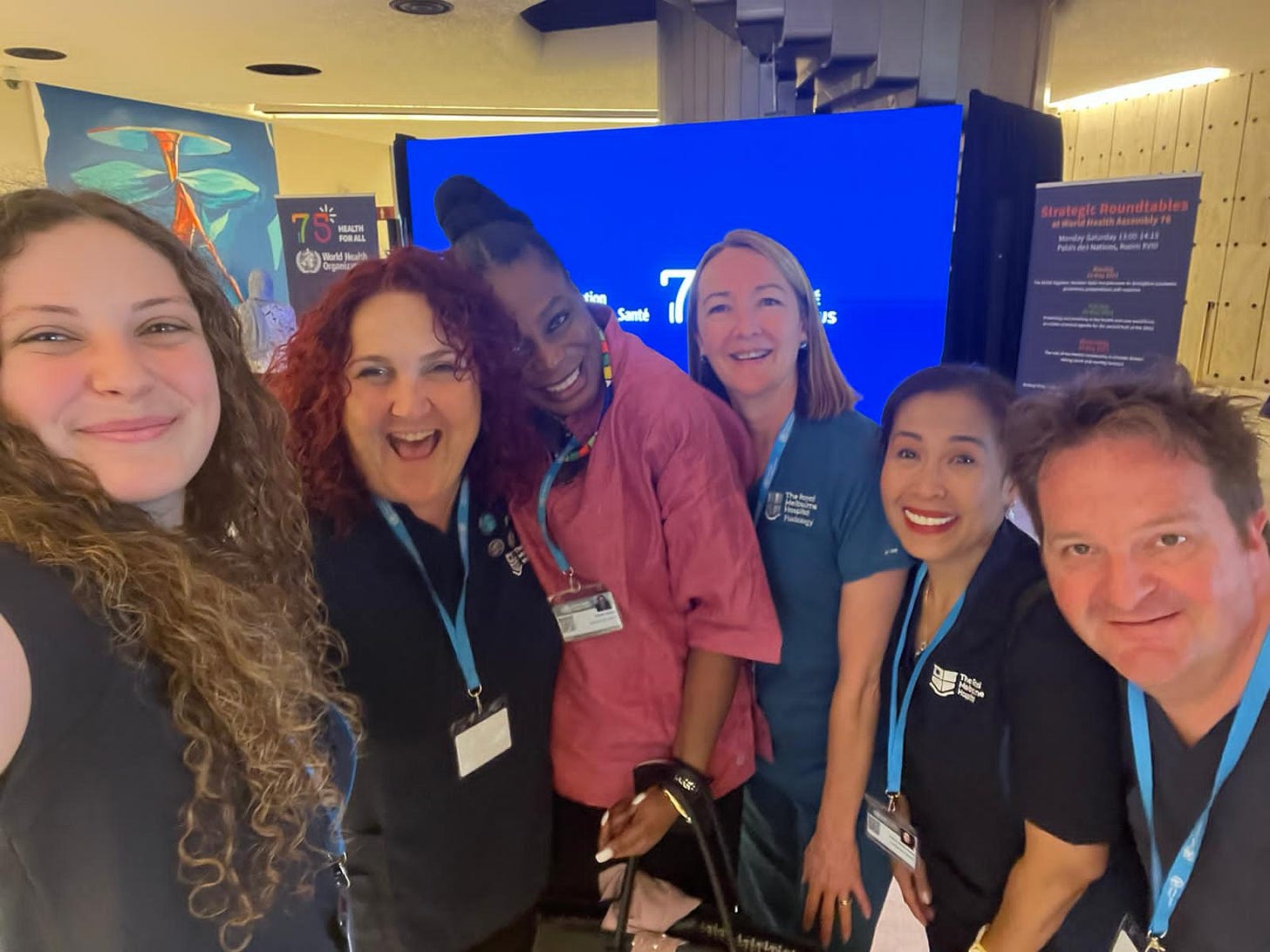
This year’s WHA was also a historical moment for diagnostics, with FIND marking its 20thAnniversary and the adoption of the Resolution on Diagnostics. It was an honour to chair a FIND hosted event with a number of Ministers of Health from across Africa, including my sisters Ministers Lia Tadesse of Ethiopia, Dr. Jane Ruth Aceng of Uganda Honourable Minister Ummy Mwalimu of Tanzania along with His Excellency Minister Budi GunadiSadikin of Indonesia and many others.
It was exciting to meet my fellow FIND Board members in June at my first in person Board meeting. FIND’s mission and vision first grabbed my attention through its strategy for women’s health, enabling access to life saving diagnostics for Human Papilloma Virus (HPV) in the remote, low resource settings. It was a pleasure to be able to organise a meeting of the FIND Board with Director General of the WHO, Dr Tedros and his senior staff on the sidelines of the FIND Board meeting. During this engagement, Dr. Tedros and his team reaffirmed FIND's status as the strategic partner for diagnostics within the World Health Organization, underscoring the significance of this partnership in advancing global health outcomes. We look forward to formally announcing our partnership in the New Year!
Back in India for the G20 Health Working Group gala in Taj Falaknuma, Hyderabad, I reflected on the sumptuous banquet, a poignant reminder of the rich cultural heritage and the potential of cultural diplomacy. This year has been pivotal in challenging power imbalances globally, especially in global health. The gala, a microcosm of the beauty and richness of diverse cultures, reinforced the need for inclusive representation in global dialogues. As we progress, it's crucial to ensure that all voices, particularly from the Global South, are heard in rooms where critical decisions are made. India demonstrated it is possible to bring more diverse voices to the policy making table. This experience solidifies my commitment to equity, redefining global health dynamics, and advocating for the agency of Global South nations.
Speaking at the WHO AFRO regional meeting in Botswana in August marked another first for me, providing a platform to engage with African Ministers and the broader African health community. This opportunity was vital in advocating for the African Medicines Agency treaty, focusing on unified health strategies and quality medicine access across Africa. The discussions aimed at strengthening the regulatory framework for medicines in Africa align with the broader goals of achieving the 'Africa We Want,' a vision of the African Union for an integrated, prosperous, and peaceful Africa. Engagement in this meeting reinforced for me the importance of networks such as AVDA and the critical need to maintain platforms which model cross sectoral collaboration for medical countermeasure which I hope will continue to influence global platforms such as ACT-A.
The G20 Health Ministers and Joint Health and Finance Ministers Meetings in Gandhinagar, in August at which I spoke felt like a dynamic confluence of minds. This assembly reflected and refracted diverse ideas, strategies, and hopes, converging into a vibrant and cohesive vision for the future of global health. This experience was an integral part of my journey, both highlighting the progress that has been made in the very holding of joint health and finance Ministerial meetings and the on going need for greater cross sectoral engagement.
September in New York saw the adoption of three political declarations relating to health.
I spoke on the High-Level Meeting Panel at the 78th Session of the United Nations General Assembly, focusing on a critical topic: 'Ensuring Equity through Capacity Building for PPPR (Pandemic Prevention, Preparedness, and Response) and Harnessing Timely, Sustainable, and Innovative Financing and Investment.’ This was an opportunity to address the need to redefine 'equity,' acknowledging that different regions and countries have varying starting points and advocating for fairness and justice to correct these imbalances. Also stressing that capacity building, particularly in LMICs and Africa, is essential for achieving self-sufficiency and resilience in health systems, and that this requires substantial financing.
There were further key side events during the UN General Assembly which I was invited to speak at including the ORF event on SDGs and a High Level Ministerial Dinner, hosted by my friend Samir Saran, where it was a pleasure to meet Minister of External Affairs S Jainshankar. It was a pleasure here to meet with Ministers from across the Caribbean including Kamina Johnson Smith Minister of Foreign Affairs and Foreign Trade forJamaica and Minister of Foreign Affairs and International Cooperation, Huge Todd of Guyana who mentioned to me the role of Afrexim Bank during the pandemic which I discuss in further detail below.
I also spoke on a Foreign Policy Panel on investing in diagnostics and the SDGs with Ministers of Health from Egypt, Brazil, Indonesia and Singapore. Reinforcing the return on investment of diagnostics, the Minister of Egypt provided the example of Hepatitis C diagnostics and the mass screening programme in Egypt where over 9 months they screened 65 million people, identifying vector positive people who could then be treated with a 350+% return on investment. It is this kind of significant health and finance impact I wish to highlight to leaders through my FIND work.
The opportunity to speak at the High Level Meeting on Pandemic Prevention Preparedness and Response was significant for the inclusion of global south voices, yet again it highlighted the challenges of authentic voices being able to access and be represented at such high level global fora.
Each opportunity I have to steer global conversations, no matter how slight, leaves me pondering: What if our voice were absent from these discussions? This reflection extends to all individuals from the Global South in influential positions and to women breaking through glass ceilings into leadership roles. The journey of change is arduous and often uncomfortable, yet we persist, driven not by personal comfort but by the imperative to transform systems that cause immense suffering worldwide.
Perhaps October and the Virchow Prize Ceremony illustrated that in some spaces, rebalancing of power and the echo of global south voices were resonating. It was one of the highlights of my year to act as Master/ Mistress of Ceremonies for the Virchow Prize, with the prize being awarded to Professor Rose Leke of Cameroon, in recognition of her contributions to the field of malaria. Professor Leke’s foundational work has led to many of the interventions for malaria we have today. This prize giving ceremony was all the more poignant for being able to stand on stage with two incredible African Women, Dr Moeti, WHO Regional Director for the African Region, providing the laudation and Professor Leke receiving the prize. In a symbolic moment of rebalancing power, the halls of the Rotes Rathaus of Berlin, the location where the Conference of Berlin from 1884-1885 which led to the annexing of Africa reverberated with the sound of African drums and dancing feet of Africans from Professor Leke’s village and representatives from across Africa.
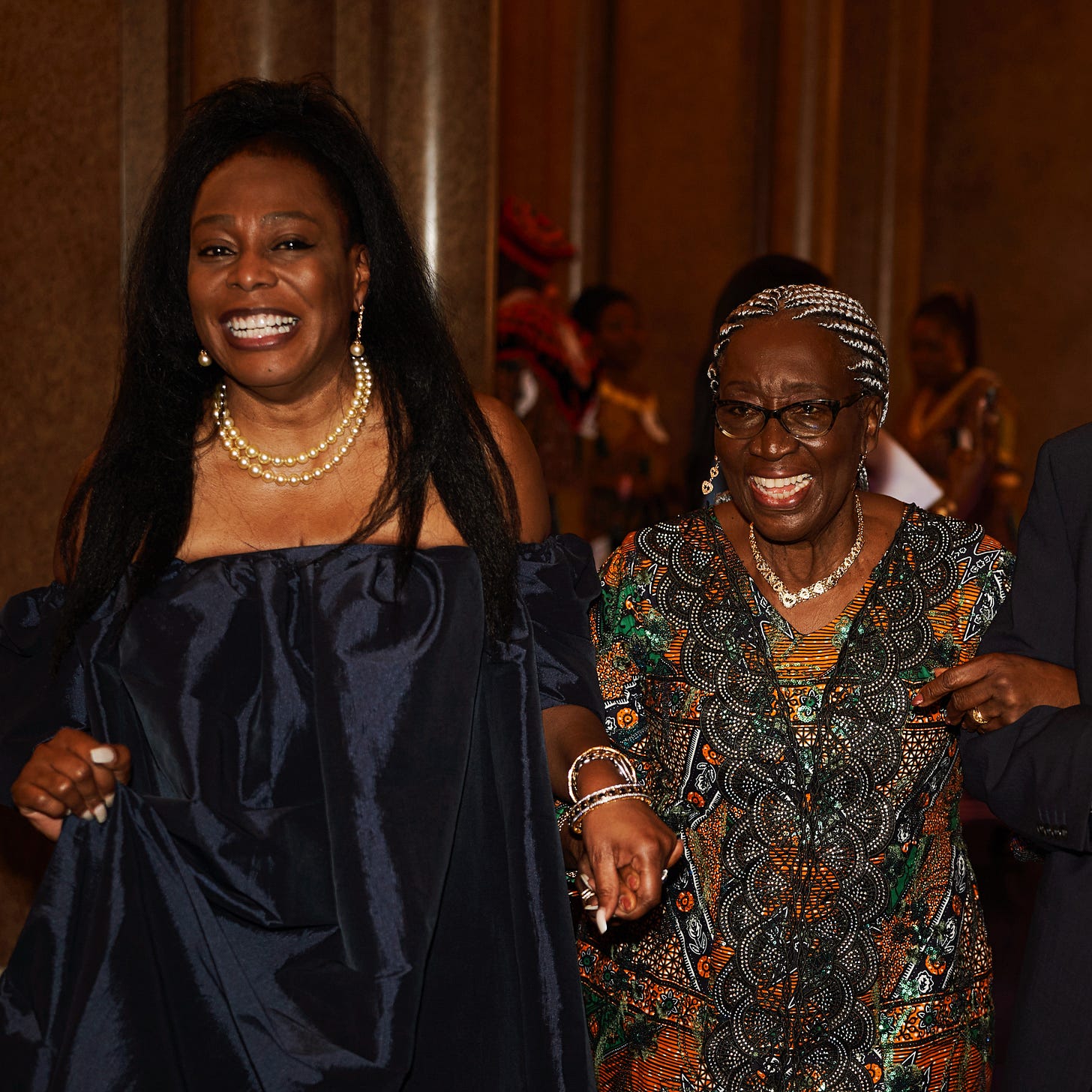
Following the Virchow Prize, the World Health Summit, reinforced the shifting Overton Window with a significantly diversified constituency of participants. Focusing on a theme of a defining year for global health action, it was exciting to share collective calls for action with doyen’s of global health such as Professor Ilona Kickbusch.
The latter quarter of the year refocused on diagnostics and this time a visit to Indonesia for a FIND Board of Directors meeting and signing of a Joint Action Plan with the Ministry of Health for Indonesia. Time in Indonesia encompassed workshops and collaborations with the Indonesian Health Ministry. In Bali, we engaged in dialogues about local production of medical countermeasures, reminiscent of Nigeria's challenges and potential. The intertwined histories of Indonesia and Africa, evident in cultural exports like batik and Indomie, mirrored in the health sector, revealed the possibilities of South-South cooperation. Indonesia's healthcare system, especially the expansive puskesmas network, showcased the power of community-based healthcare in diverse and challenging environments. This journey was a testament to the resilience and innovation possible in the Global South, even with limited resources. My experience in Indonesia, observing the dedication of health workers in far-flung areas, reinforced my belief in the value of local knowledge and practices in global health development, an issue needed wider acknowledgement at the global level of discussions.
This year has also been a time of deep personal reflection on themes of legacy, continuity and knowledge production and sharing. I have pondered the importance of maintaining unbroken chains of knowledge, learning from history to avoid repeating cycles of oppression, discrimination, and violence. Intergenerational diplomacy has emerged as a vital tool in addressing these systemic issues. In October, I had a deeply moving engagement with the group of senior global leaders called “The Elders”, founded by Nelson Mandela. The highlight being a one to one conversation with Nelson Mandela’s wife Graça Machel and a lovely conversation with former UN Secretary General Ban Ki Moon. This group embodies a reservoir of wisdom and moral courage, working selflessly to address global challenges. Positioned between The Elders and younger generations, I perceive a unique opportunity for intergenerational collaboration to heal our planet. The Elders, with their experience, play a crucial role in ensuring global initiatives are infused with deep-rooted ethos and wisdom. Writing about this recently, I reflected on the profound importance of continuity and innovation in shaping a harmonious, equitable world. There is a necessity of genuine intergenerational dialogue, respecting the wisdom of the past while being receptive to the perspectives of youth. My experiences with global leaders and the younger generation underline the value of diverse voices in navigating global challenges. This approach is central to my advocacy for a more inclusive global discourse.
As this year draws to a close, it's sobering to observe the on-going impact of COVID-19, with COVID-19 infection rates in the UK surpassing those at the pandemic's peak and long COVID continuing to devastate the lives of many people across the world. I find myself asking whether December 2020 is repeating itself, with waning immunity and an increase in airborne viruses- should the world consider reinstating a state of Public Health Emergency of International Concern and all it entails?
The current peak in cases underscores the persistent threat of COVID-19 and highlights the critical need for a Pandemic Treaty. The Treaty's development and implementation becomes more urgent as we aim to safeguard global health against future pandemics. This situation serves as a stark reminder of the ongoing work necessary to ensure worldwide preparedness and protection.
For me, the first half of the year felt like an uphill battle, with much norming and storming in the global health arena with institutions, organisations and individuals throwing up different solutions to the challenges we see confronting us, not just in global health but the myriad of interconnected polycrisis we are confronted with. This time felt reminiscent of the days of the height of HIV AIDs when I chaired the Technical Working Group (TWG) for the Pacific region before the establishment of UNAIDS. This time saw different groups jostling for limited budgets for action.
Similarly, we are still taking self-interested approaches, pulling at the same purse strings, in different directions as opposed to pulling together to bring resources both human and fiscal together to work in a coordinated manner. Our fragmented, self-interested approaches only rip apart, scatter and dilute our resources and efforts. We must strive to do better.
A new year must see new approaches to achieve collaboration and integration. We must learn from history. A further reason to maintain intergenerational conversations and connections, so that we continue to learn from each other in a circular learning process. As we find ourselves in a world of global conflict and on-going polycrisis, for me events occurring very close to home with on-going massacres of whole communities of Christians in the middle belt of Nigeria, Plateau State and the on-going horrors in Gaza, it is critical we find ways of coming together for our common humanity.
Change happens slowly, there are some days when one feels exhausted and wonders if we are achieving the change we wish to see. On reflection however, we can see the needle is shifting. For example, equity is a cornerstone of all three High Level Political Declarations on health adopted this year, on local manufacturing to enable self-sufficiency and resilience, GAVI recently committed $US1.8 billion to support African vaccine manufacturing. FIND is also working with Global Fund and PEPFAR to support local manufacturing of diagnostics.BioNTech’s announcement also this month of production of mRNA vaccines in Rwanda to huge fanfare also symbolizes change is happening, the Overton window is shifting. There is still much to be done to reach a point where a life in Abuja is seen to be worth the same as a life in Washington DC. As for me, I feel I have tried my best in 2023. Now is a small window to refresh and get ready to continue to work for equity, with less conflict and more tangible action.
Looking forward, my hope for 2024 is rooted in action, introspection, and commitment. I envision a year where political action aligns more closely with the needs of the most vulnerable, especially in the Global South. More widely our collective hope is for peace, as Dr Tedros Director General noted,' there cannot be health without peace, and there cannot be peace without health’. We must maintain our resolve to speak truth to power, to continue to challenge the rise of authoritarianism and widening trust deficit, we must do so for our collective futures and that of humanity. I hope you will join me in that resolve.
Wishing you all a healthy, safe, productive and peaceful 2024.



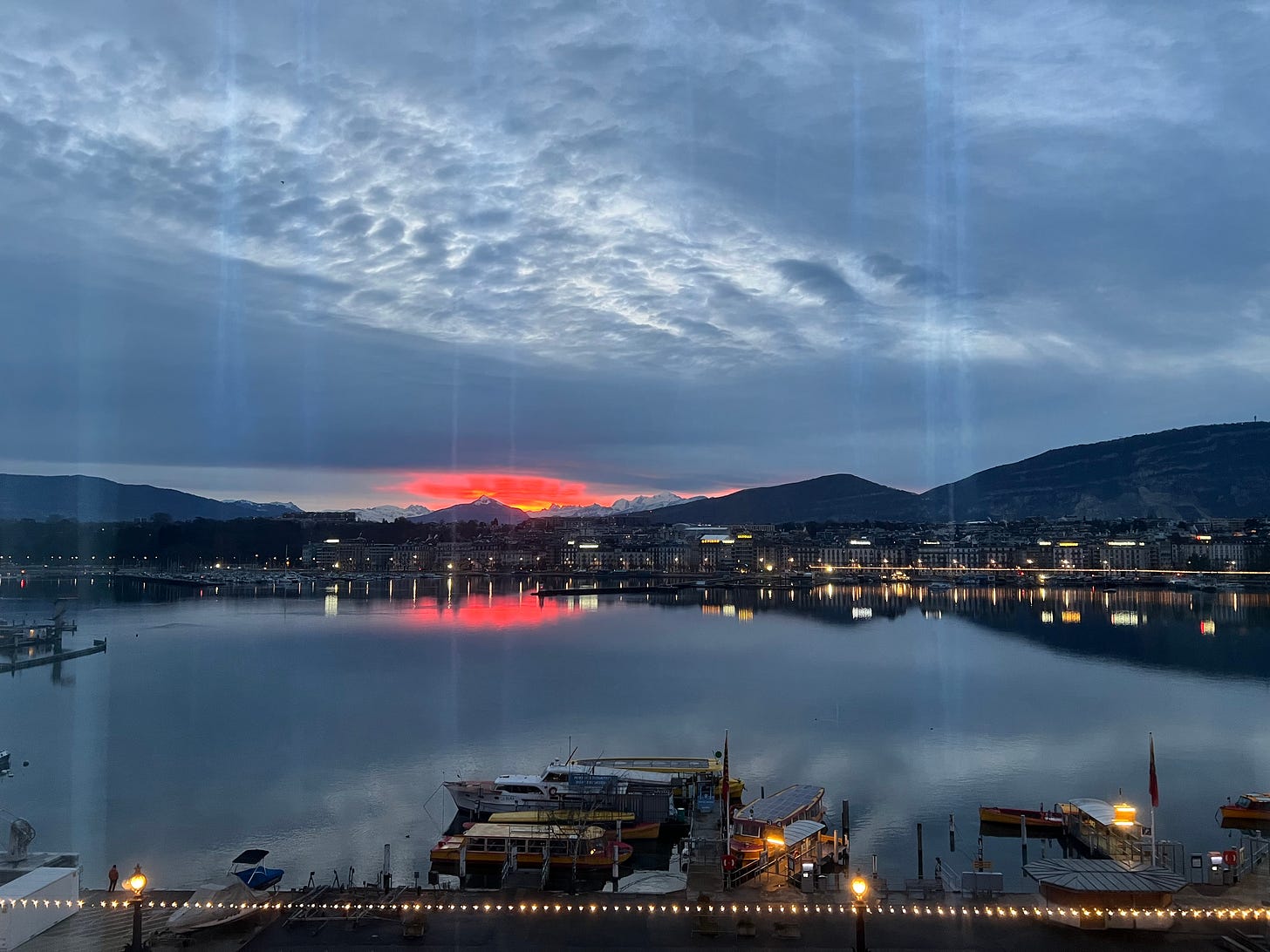
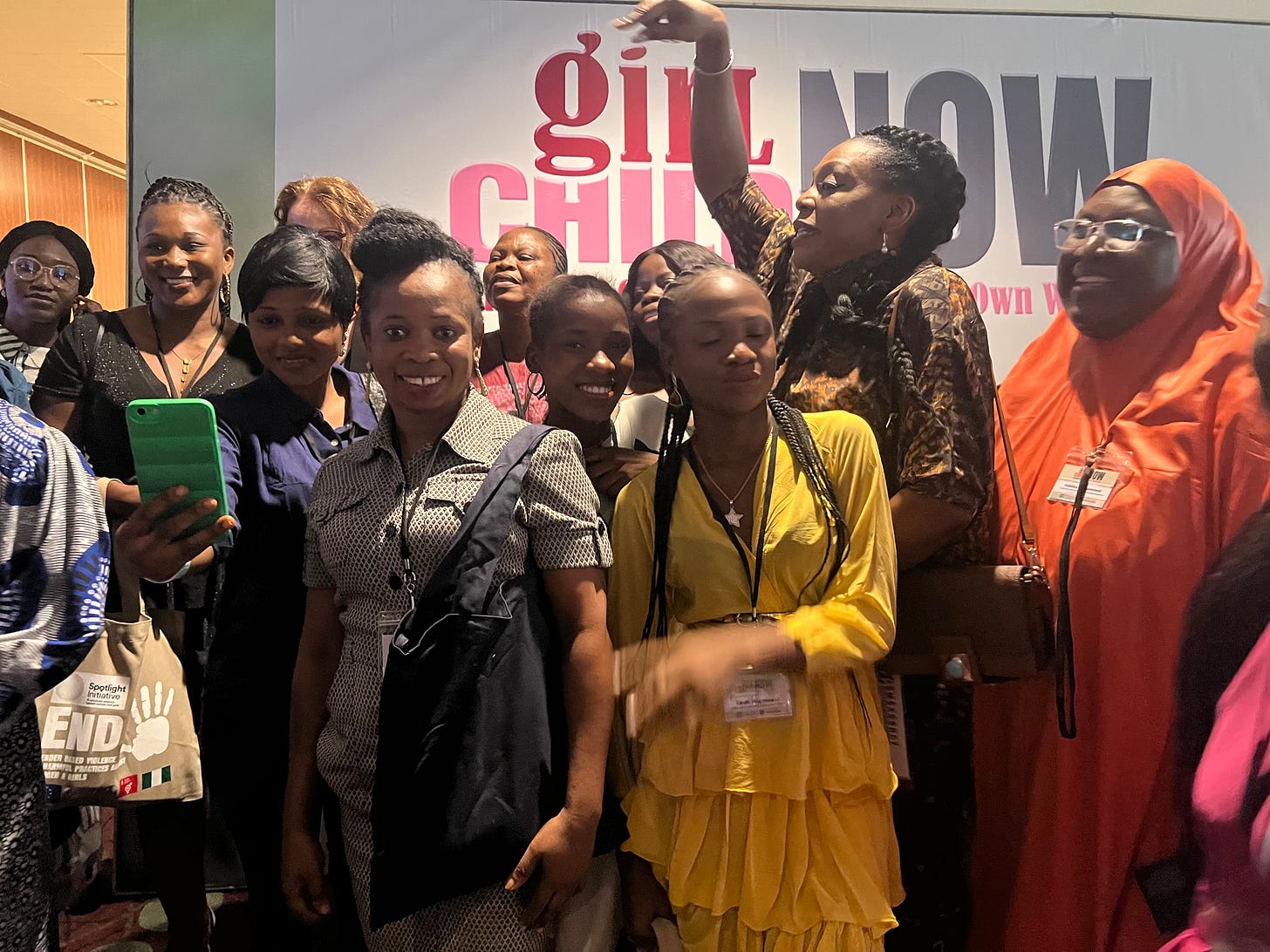
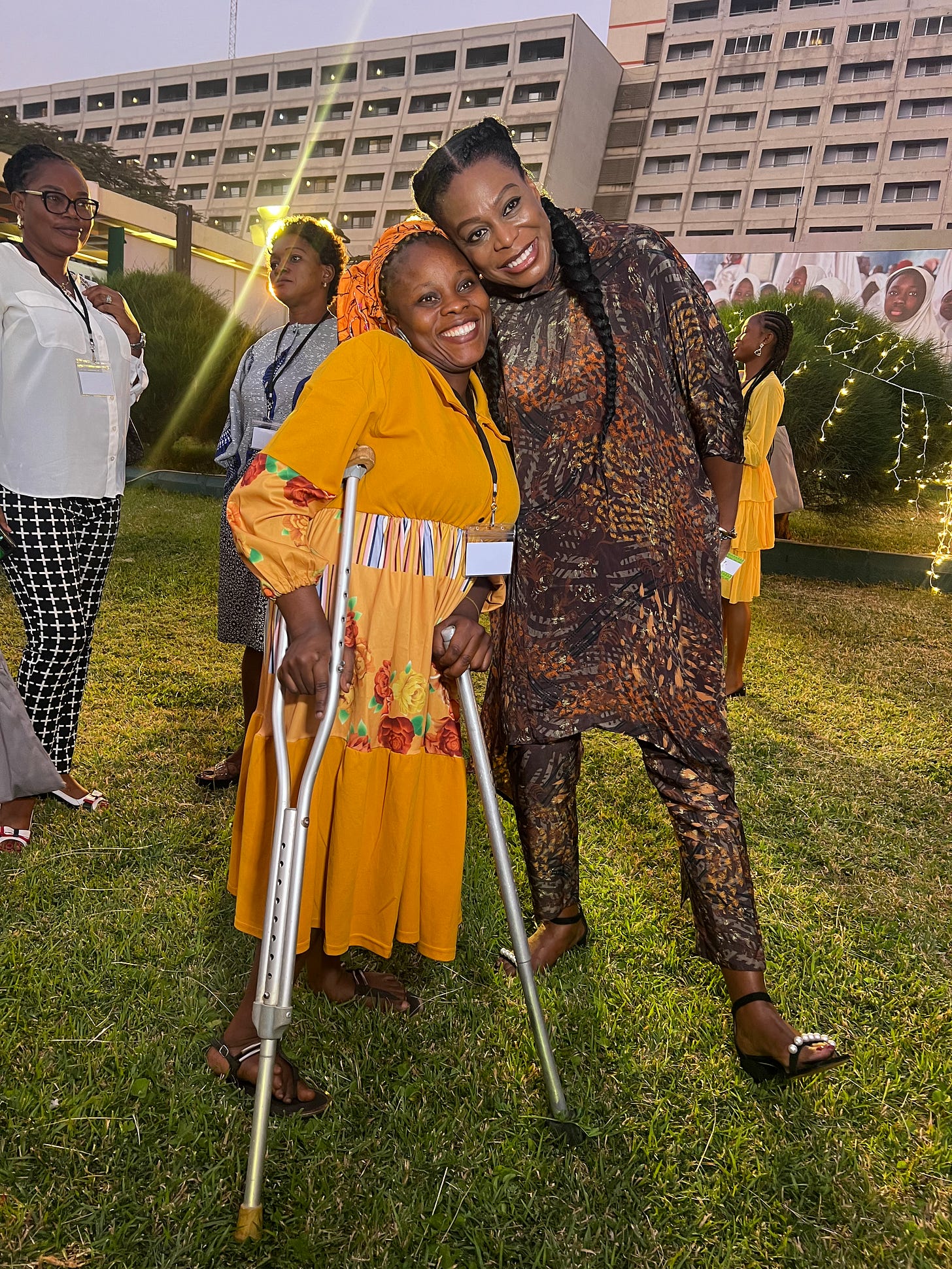
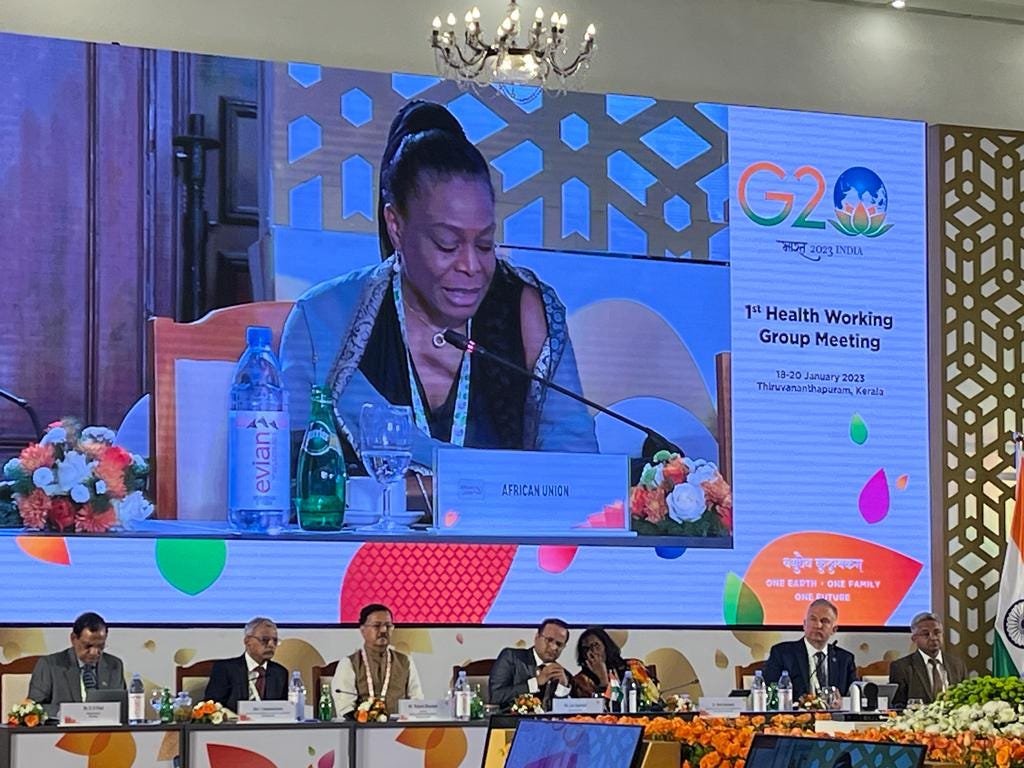


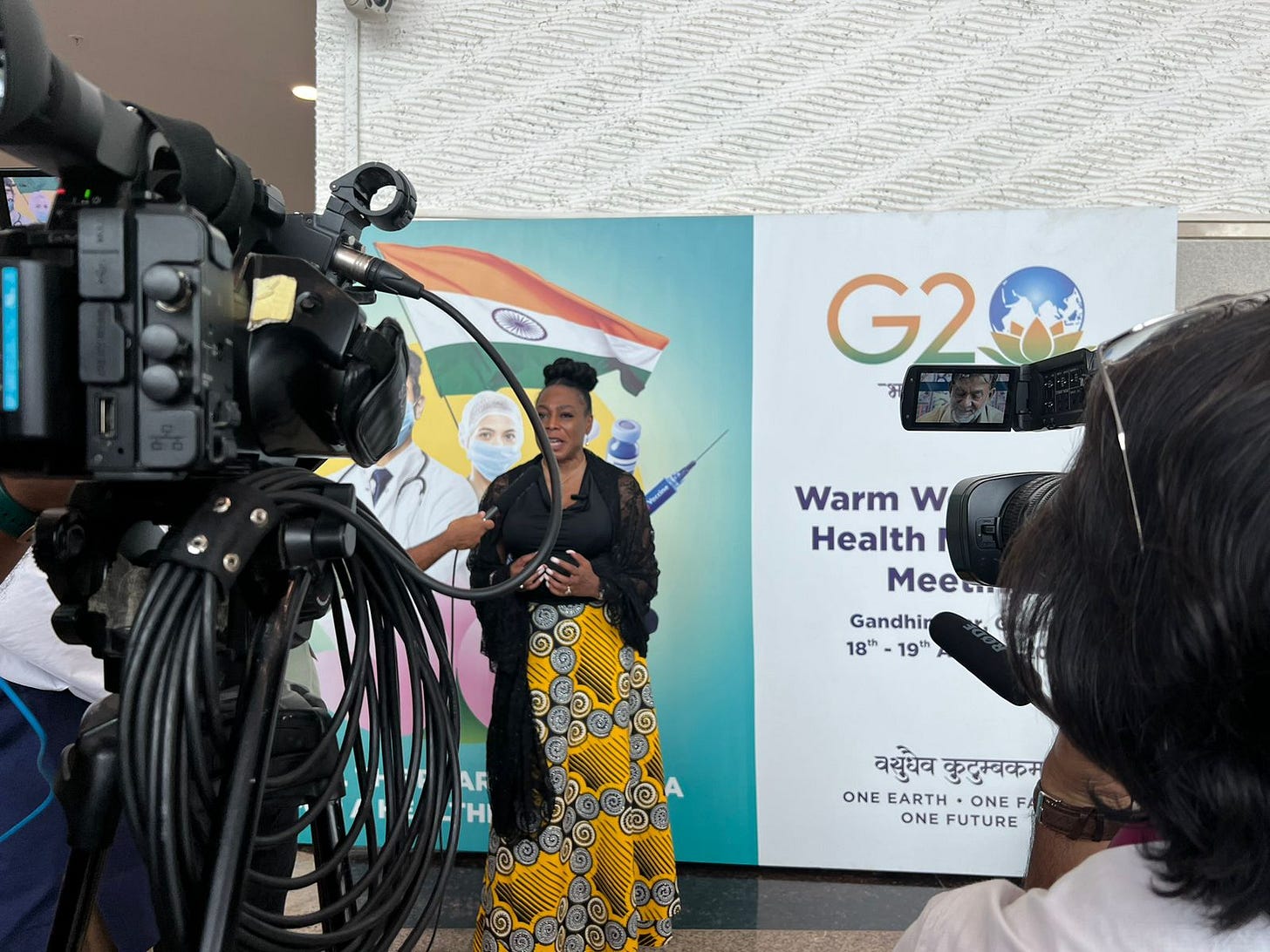
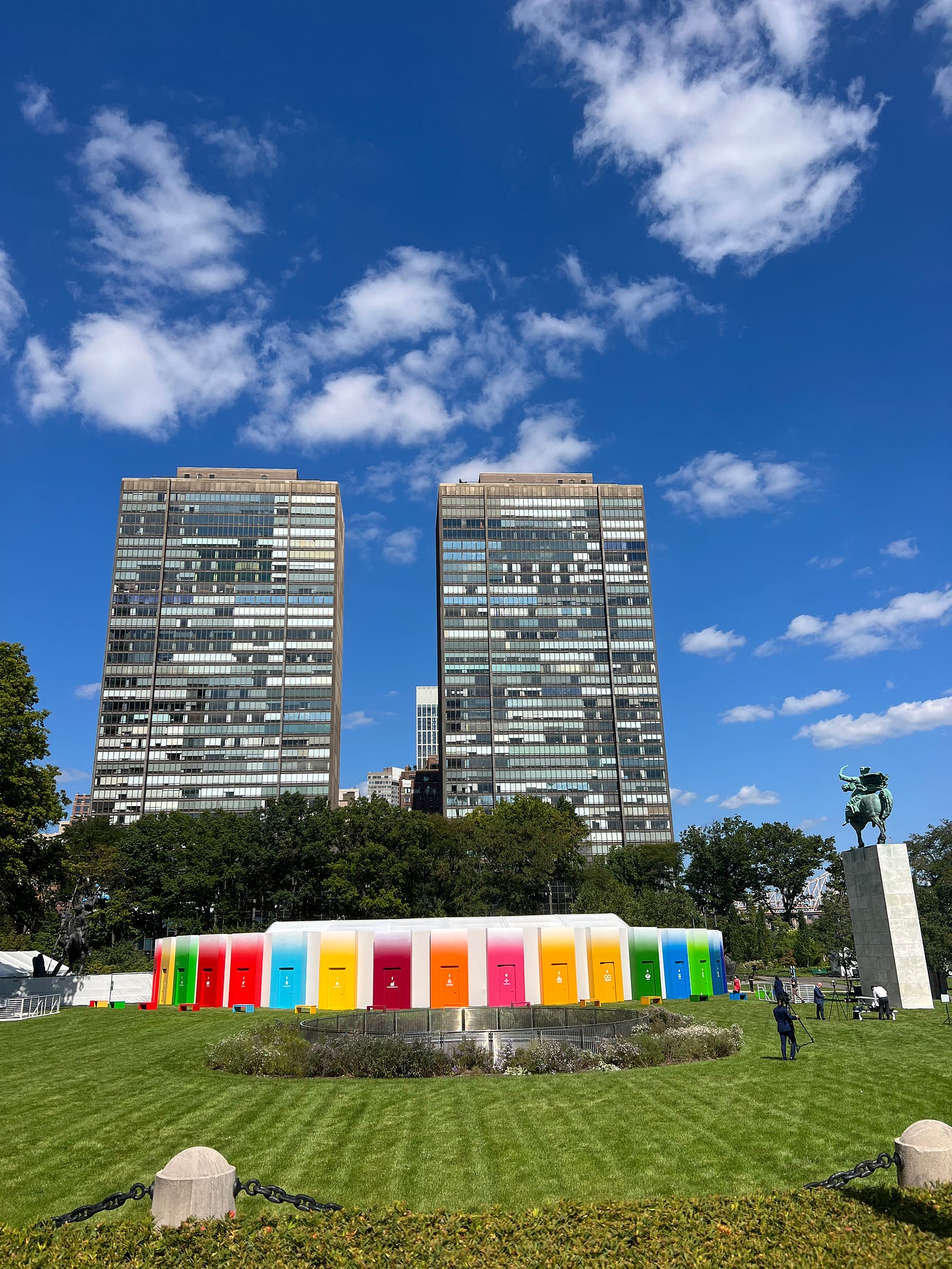

Wow..........talk about going "around the world in 80 days" !!!
I thoroughly enjoyed reading the compressed version of your journey to save our people and our planet in 2023.
What a series of impressive achievements Sisi wa. Just awesome!
Kudos, God bless and wishing you a blessed, healthy and safe 2024.